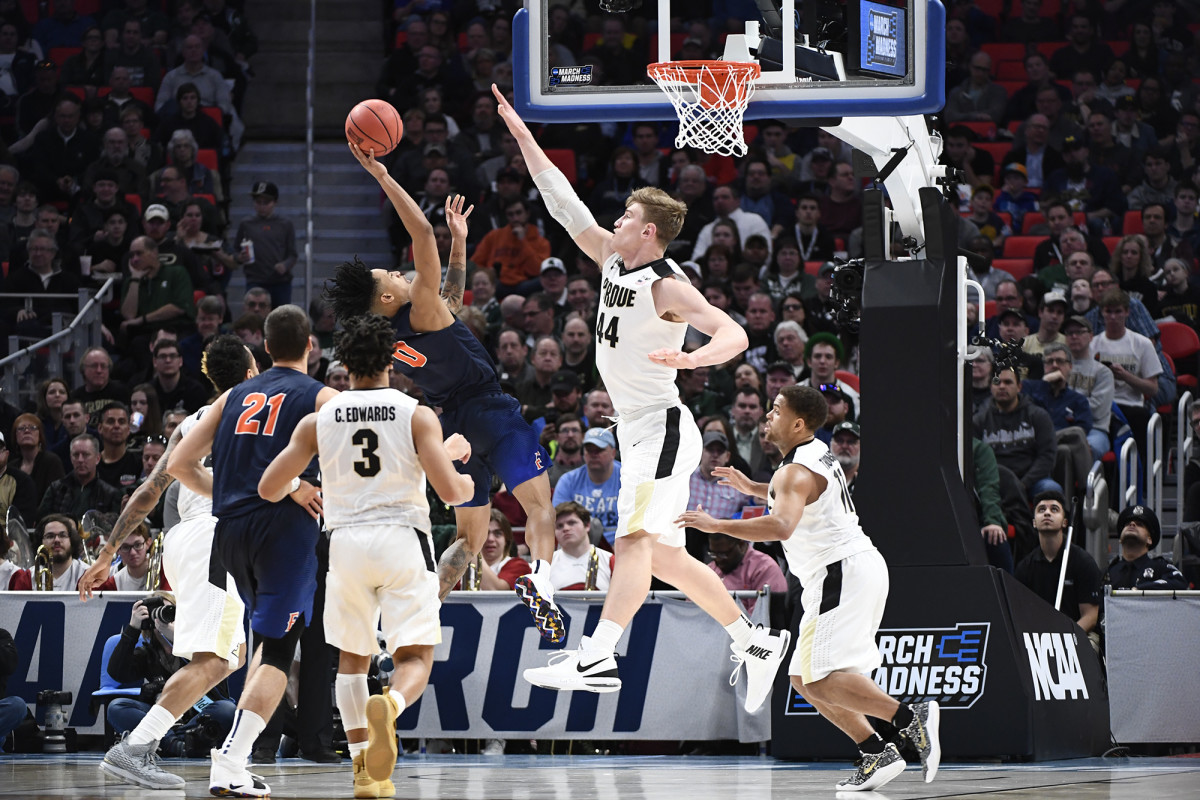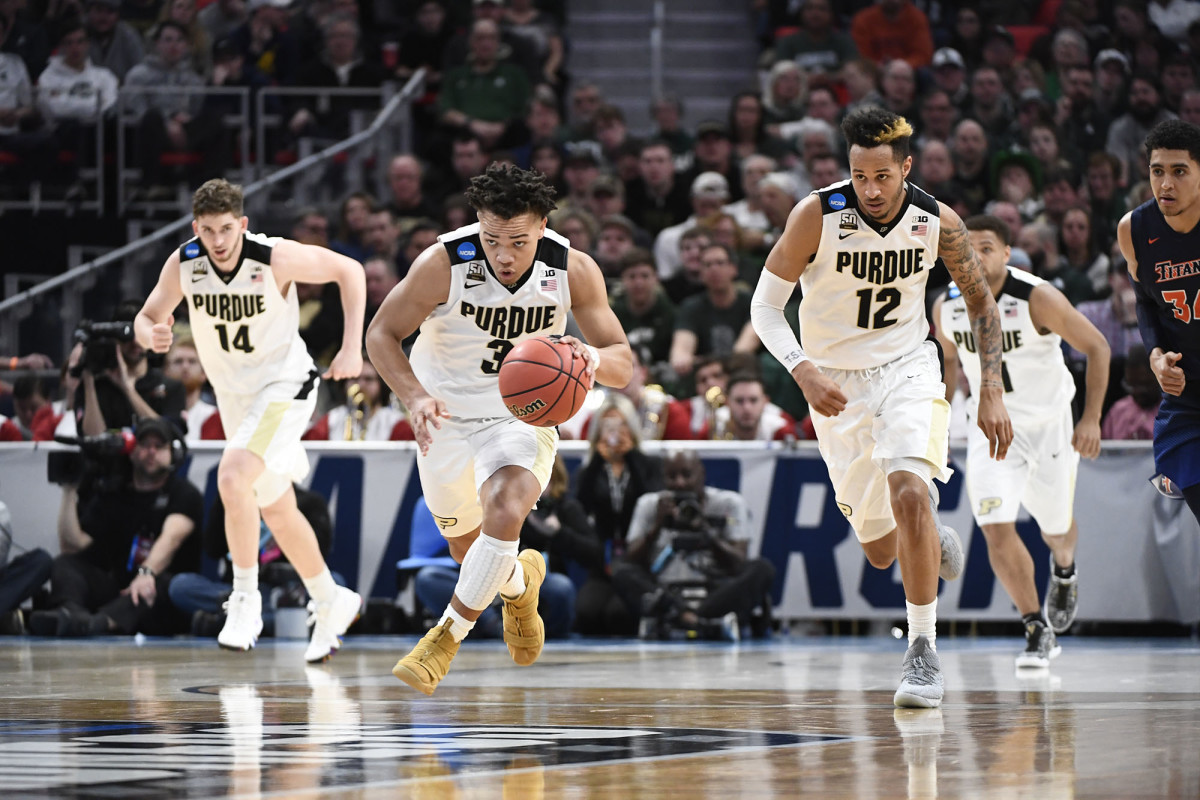What the Isaac Haas Injury Means for Purdue's NCAA Tournament Outlook

DETROIT – The official tweet about Isaac Haas was so startling, even Haas might have wondered if it came from a fake account. An hour earlier, he had sat in the Purdue locker room and told everybody his right elbow was fine. Now here was Purdue, announcing he had fractured it.
Haas’s season is over. Purdue’s season might end soon. And if you believe the sports world is just and fair, you would get a strong argument from anybody in West Lafayette with a sense of history.
Haas hit the floor hard in the second half of a blowout win over Cal State-Fullerton on Thursday—well, 7’2”, 290-pound men don’t hit the floor gently. He was writhing around enough to make you wonder if this was more than just a bruise, but after a minute or so, he got up. Guard P.J. Thompson teased him about hitting his free throws. Haas did eventually go to the bench, and he held his elbow there and winced quite a bit. But he was not asking for medical help and eventually returned to the game. Afterwards, Haas said he was OK.

So where does this leave Purdue? To answer that, we must first understand Haas, the team's senior big man. He is a throwback, in ways good and bad: an enormous, skilled and slow center. Haas averaged 14.9 points on 62.1% shooting this year. He is capable of abusing almost any college player in the post.
Against Michigan State, Ohio State and Michigan—the other three Big Ten teams that received NCAA tournament bids—Haas scored 107 points in 124 minutes. That is an astounding pace, but it’s one that Haas can’t keep up for a whole game. The running game is not for him, and modern space-and-pace offenses expose him defensively. Purdue coach Matt Painter frequently used deadball rebounds and scheduled timeouts to put Haas on the bench for defensive possessions in favor of freshman shot-blocker Matt Haarms.
What made this Purdue team a Final Four contender is its variety; they could pound it into Haas, but they could also ask shooters Carsen Edwards, Dakota Mathias, Vincent Edwards and P.J. Thompson to light teams up. To win the national title, you need to beat a variety of styles.
Without Haas, Purdue can still win. It just can’t win in as many ways. And this may be a problem as soon as Sunday. Purdue faces a team it has already played, Butler, led by a coach, LaVall Jordan, who will be bringing teams to this tournament for the next 25 years or so.

When Purdue played Butler in December, the Boilermakers hit the Bulldogs with both fists: pressure that forced Butler into turnovers and poor shots, with a complement of interior play by Haas, who scored 15 points in 16 minutes.
Now Haas is out, and we will find out what kind of team Purdue will be. If the Boilermakers push the pace without Haas, they may play into Butler’s hands; as the Bulldogs showed in a 79-62 win over Arkansas Friday, they can score in an up-and-down game. Butler struggles more in the halfcourt. But will Purdue be comfortable playing a halfcourt game without Haas?

The answer, as any Boilermaker can tell you, involves expletives. A little history lesson:
Purdue has not made the Final Four since 1980. Arguably the best Purdue team in that time was the 2009–10 Boilermakers. They were ranked No. 3 in the country in late February and had a real chance to win the national title when star Robbie Hummel tore his anterior-cruciate ligament in his right knee. They fell to a No. 4 seed and lost to Duke.
How Gonzaga Got Flexible to Build Itself Into a Unique Contender
And in 1994, Purdue had the best player in the country, Glenn Robinson, and a No. 1 seed in the NCAA tournament. Robinson suffered a back injury in the Elite Eight and shot 6 for 22 in a loss to Duke, preventing Purdue from another Final Four berth.
The immediate sympathy goes to Haas. The next wave goes to his team. And the third wave goes to everybody who cares about Purdue basketball. The Boilermakers could still make a Final Four run. But the more likely scenario begins with those two dreaded words: What if?
